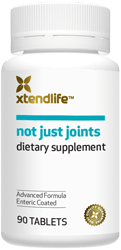

| |||||||||||||||||
|
GOUT:
Cherry Juice Gout RemedyFoods High in Uric Acid Gout Foods Gout Relief Gout Treatments Low Purine Diet Uric Acid Levels Diet for Gout ARTHRITIS:
Arthritis Pain Reliever PAIN:
Lower Back Pain RemediesNatural Anti Inflammatory Joint Pain was created to help people with osteoarthritis, rheumatoid arthritis and related disorders learn about treatments to ease symptoms and help them lead a more comfortable life. There are natural treatments for joint pain that can have significant benefits, and more and more people are choosing safer alternatives to treat joint pain due to arthritis. |
The Gout Foods To Include and Avoid To Ease The PainWhen one mentions gout foods, they are usually referring to things to avoid in the diet in order to minimize the pain associated with this inflammatory disease. But just as important, there are food items that you can try to add more of that may also help with your discomfort. In a nutshell, gout is a condition more common in men than women, and usually affects older men. It is marked by an excess of uric acid accumulation on the body. This buildup forms little crystals in the joints, and this causes the pain associated with the disorder. As such, foods for gout need not contribute to further buildup of uric acid (hyperuricemia), and need to alleviate rather than aggravate an already uncomfortable situation. The good news is since we are aware of what is causing the joint pain, we can determine which food items will make it worse, and which will make it better. By following a modified diet excluding and including the various foods, respectively, you can really help yourself out and minimize suffering. Let's start with gout foods to be avoided: We know that uric acid is left behind when compounds known as purines are metabolized. As such, avoiding food items with a high purine concentration or that contribute to uric acid accumulation is a great start. 1. Meat - Pork, beef, venison, liver and other animal meats contain very high purine levels and should be avoided. Bacon and hotdogs also make the list. Chicken and turkey have moderate levels, so you shouldn't have too much of them either. 2. Certain Seafood - Shellfish such as lobster, crab and shrimp also contain a lot of purines, as do sardines, herring and tuna. 3. Alcohol - Although it doesn't contain purines, it does hamper the effective elimination of uric acid in the body. As such, alcohol, especially beer, can cause an increase in joint pain. 4. Legumes - Dried beans and peas contain high purine levels and can be problematic for some people. 5. Yeast - Breads, bagels and baked goods can raise your uric acid levels as well. Not all of the above mentioned foods for gout cause problems for all people. Some sufferers do not have problems with legumes, while others report flareups upon eating them. It's just a matter of finding out what triggers your condition and trying your best to avoid or at least minimize those foods in your diet. Now let's get into the gout foods that can actually help: Obviously anything that is lower in purine concentration is a better choice to avoid crystal formation. Other foods can help for different reasons. 1. Cherries have been shown in various studies to significantly minimize gout flareups. It's believed to be due to the anti-inflammatory effects of antioxidants called anthocyanins. Other red and purple fruits and vegetables contain this antioxidant as well and may offer similar benefits. 2. Bananas are good foods for gout because they can help break down uric acid for easier excretion due to their potassium content. They also contain the B vitamin folic acid, which may be able to break down the uric acid crystals. 3. Vegetables of all sorts can be helpful. Fiber-rich veggies such as squash, beets, turnips and yams may provide relief. Spinach and okra are good due to their magnesium content. Green leafy vegetables are a great choice as well. 4. Fatty fish such as salmon and hoki contain inflammation fighting omega 3 fatty acids which have been shown to help naturally reduce inflammation. 5. Fiber-rich food such as nuts, seeds and whole grains can help flush out your system and remove excess uric acid. Try to drink as much water as possible to remove waste and toxins, and limit your alcohol intake. Exercise is also very important, as is limiting stress. Anything you can do to improve your general health will help with your gout as well. So those are your gout foods to stay away from (or limit) and those to try to add to your everyday diet to try to reduce symptoms. Have a food that works (or doesn't) for you? Drop us a line and tell us about it. Featured Gout Treatment After extensively researching treatment options, we have discovered a breakthrough natural treatment that many people have had enormous success with. This special solution is revealed in the Gout Remedy Report and it contains all of the natural remedies, including gout foods, that can reduce swelling and stiffness as well as protect the joints and provide long lasting pain relief. Try the Gout Remedy Report today and see if this natural, effective treatment can help you eliminate the pain associated with this condition. |
Featured Arthritis Treatment Relieve Arthritis Pain Significantly

Discover how Not Just Joints can treat arthritis pain naturally without the side effects of prescription drugs. |
||||